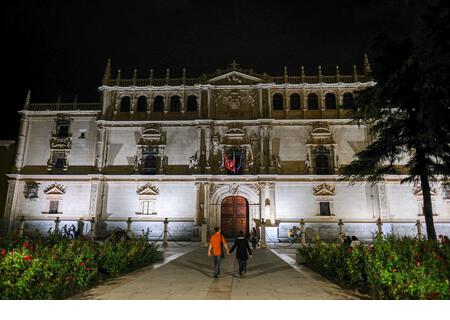
ESCUELA DE DOCTORADO |
Actividades formativas de doctorado |
| |
|
| D445006 | Extreme heat events: definition, drivers and forecasting |
|
| Organiza: Prof. Jorge Pérez Aracil |
Inscripción en: https://gestion-doctorado.uah.es/doccursos
(en este momento no hay plazo abierto para preinscripción en este curso)
Plazas ofertadas: 50
Duración: 1 horas Tipo: Específico
Modalidad: Mixta (Presencial + virtual)
Lugar de impartición: Salón de Grados - Escuela Politécnica Superior
|
 |
| Fechas de impartición
| | 16 de septiembre de 2024 a las 12h - Salón de Grados - Escuela Politécnica Superior |
|
Descripción general
|
Extreme heat events inflict a diverse range of losses on our health and economy. Efforts to identify precursors to these events and to predict them are being explored in order to mitigate and prepare for potential damages. Meanwhile, debate still continues on how best to define these events. In this talk, we will cover: (1) definitions of various extremes; (2) physical processes during their onset; and (3) our ability to predict them on seasonal timescales. Several types of extreme heat events will be introduced, from “classic’ heatwaves to warm nights, and even marine heatwaves; their differences and importance will be discussed. We will see whether existing forecasting systems reliably predict these heat extremes or not. The highlight of the talk will be the focus on recent work done, in the CLINT project, on novel machine learning-based approaches to tackle driver detection and forecasting. The conference will be given by Phd Ronan McAdam.
|
|
Profesorado
|
Ronan McAdam is a researcher working on predictions of the ocean and extreme events. Since joining the Euro-Mediterranean centre on Climate Change (CMCC) in 2019, he has driven progress in the validation of essential ocean variables (e.g. temperatures) in short-term and seasonal forecasting systems. He has focused particularly on marine heatwaves, defining subsurface indicators and performing the first global scale validations of marine seasonal forecasts. He also contributes to ocean modelling activities, studying the variability of physical variables the CMCC’s state-of-the-art high-resolution physical ocean models and reanalyses. Currently, he is developing AI-enhanced forecasts of atmospheric heat waves.
|
|
|
